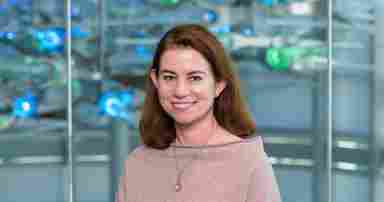What do you do at the Center?I study aging and administer the BrainHealth Index (formerly BrainHealth Physical), which gives me the opportunity to work with normal aging people as well as those with disease. I have a lot of involvement with the corporate world of BrainHealth as well, applying what we have learned from our research at the Center to the corporate environment.What got you interested in aging and the brain?I’m a speech pathologist by training, but I was really interested in working with acquired disorders after taking a class called “Language and the Brain.” When I first started working with Dr. Sandi Chapman, I worked with children who had acquired disorders from traumatic brain injuries. Every case was new and different, and every case taught me more. Each brain is unique and that is what makes the field of brain science so exciting and pioneering.What is the best part of your job?The best part is the interesting people I meet, getting a small peek into their lives, and learning from them as much as they hopefully learn from us. Many times people sign up for the BrainHealth Physical without knowing why, necessarily, they are doing it and just know that getting a benchmark of their brain health is a good idea. Often I find that after administering the BrainHealth Physical and giving feedback, the individuals are blown away by how much the assessment shows about them and the level of detail. Afterward, people always say,“That’s exactly the way I am. It’s like you’re walking in my head.” When I have a really good connection with someone and am able to make recommendations that are realistic for their daily lives, that is when I really love my job.What is the biggest thing you have learned from your work at the Center for BrainHealth?In brain science there are endless possibilities. The brain is always changing, and there is so much we have yet to learn about it. To be successful in brain science, you cannot limit yourself to a set way of thinking or a set of already-found answers. We are constantly searching for new possibilities or a new way of thinking to help our patients!What are three adjectives that describe you?Edgy, compassionate and loyal.

